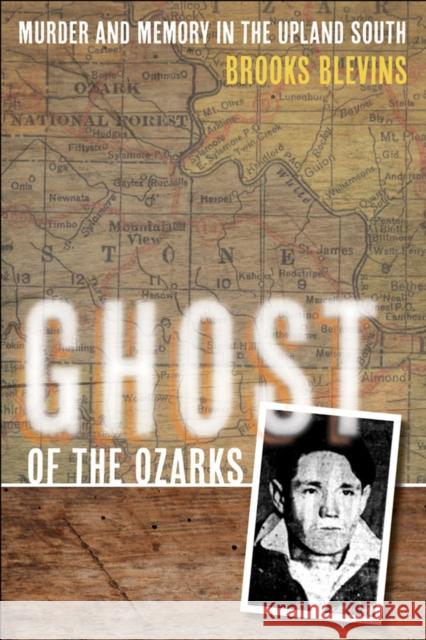Ghost of the Ozarks: Murder and Memory in the Upland South » książka
Ghost of the Ozarks: Murder and Memory in the Upland South
ISBN-13: 9780252082573 / Angielski / Miękka / 2017 / 304 str.
Ghost of the Ozarks: Murder and Memory in the Upland South
ISBN-13: 9780252082573 / Angielski / Miękka / 2017 / 304 str.
(netto: 74,28 VAT: 5%)
Najniższa cena z 30 dni: 72,37 zł
ok. 30 dni roboczych
Bez gwarancji dostawy przed świętami
Darmowa dostawa!
In 1929, in a remote county of the Arkansas Ozarks, the gruesome murder of harmonica-playing drifter Connie Franklin and the brutal rape of his teenaged fiance
captured the attention of a nation on the cusp of the Great Depression. National press from coast to coast ran stories of the sensational exploits of night-riding moonshiners, powerful "Barons of the Hills," and a world of feudal oppression in the isolation of the rugged Ozarks. The ensuing arrest of five local men for both crimes and the confusion and superstition surrounding the trial and conviction gave Stone County a dubious and short-lived notoriety. Closely examining how the story and its regional setting were interpreted by the media, Brooks Blevins recounts the gripping events of the murder investigation and trial, where a man claiming to be the murder victim--the "Ghost" of the Ozarks--appeared to testify. Local conditions in Stone County, which had no electricity and only one long-distance telephone line, frustrated the dozen or more reporters who found their way to the rural Ozarks, and the developments following the arrests often prompted reporters' caricatures of the region: accusations of imposture and insanity, revelations of hidden pasts and assumed names, and threats of widespread violence. Ghost of the Ozarks: Murder and Memory in the Upland South entertains readers with a dramatic tale of true crime as well as a skilled interpretation of the region. Throughout this narrative, Blevins weaves a sophisticated social history of the Ozarks in the early twentieth century, critically analyzing the stereotypes and imagery inherent in local folklore and embedded in media coverage of the murder and trial. Locating the past of the Upland South squarely within the major currents of American history, Blevins paints a convincing backdrop to a story that, more than 80 years later, remains riddled with mystery and a source of bitter division in the community where some believe Connie Franklin met his end.











